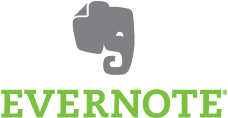
If I have learned one thing since starting this blog in 2007, and in running the daily blog at chickenmonkeydog, it is this: when inspiration hits, capture that feeling, those thoughts or that picture right away. Don’t let the moment escape and leave you lamenting “Only if …” Generating quality blog content for our small businesses is tough; we cannot afford to let any good content ideas slips away.
Four tips for capturing inspiration
So, to help improve our ability to harness those sudden burst of inspiration, I have shared a few tips to ensure that we capture those inspirational moments in a timely fashion.
1. Write it down
In the technical age, there is still great value in keeping a pen and paper handy at all times. With a little notebook and pen stuffed into our pocket or bag, we can easily jot our thoughts down. Write as much as we need to capture the full thought and spirit of the idea. If we have the opportunity to do so, take as much time as we need to be complete. It is time well spent.
2. Send an email
If we’ve access to the internet, we can email ourselves the key points from our brainstorm. Depending on our work flows, having our thoughts in an email can help us organize and store them too. An added benefit of this approach is that we’ll have these thoughts in the cloud in case we want to refer back to them later. We should use a idea-specific subject line to help us find the email later.
3. Leave a voicemail
For old school people whose phone only makes telephone calls and sends text messages, we can call and leave ourselves a voicemail. In just a few minutes — or longer if we need it — we can leave ourselves a detailed auditory note that we can check and re-check later. Don’t forget to transcribe the voicemail when we have time. This saves us from mourning our accidental deletion of that message.
4. Snap a photo
If we have a smart phone, we can capture the inspiration with a photo. We can use the camera to take pictures of more than just smiling faces and captivating landscapes. We can photograph anything to save it as a visual record: signs, ads, meeting minutes, business cards, whatever! We can always type up whatever notes we’ve photographed at a later date.
Organizing those notes

While the first half of this blog post focused on capturing our creative ideas and inspirations for our small business blogs, the second half deals with storing and organizing the notes we generated documenting those ideas.
For the smart phone user, I have a wonderful recommendation: Evernote. It is a great app for capturing, storing and searching all the little notes we generate during our business day. Integrating smoothly with both the iPhone and the computer, Evernote allows for all notes to be titled, tagged and stored in the cloud.
With the right tools in place, and a bit of practice, we will be well on our way to writing better blogs posts as we will have a method for capturing and storing ideas and inspirations for blog topics as and when they hit us.
My smartphone app of choice (Android OS) is Catch… great tool for jotting a quick note, with the ability to add video / photo / audio enhancements. Will need to check out Evernote!
Bill,
Thanks for the tip there. Always good to know of options for different operating systems.
I have a question… of sorts.
I’d like to start blogging/writing about something which is very important to me. Something in which I’m involved. However, as part of my involvement I have made it a habit to endeavor to remain emotionally detached from the endeavor as it can be draining when things go awry. And things do go awry.
I’ve become concerned that writing about such will only see me lose the critical emotional distance I’ve tried to maintain over the past 4-years.
I know this is outside of the scope of blogging/writing for the purpose of business, but I’m curious as to what you think about this sort of situation.
Wow! There’s a loaded question. Let me reply by asking you a few questions:
(1) Does your topic affect other people? That is, will publishing your thoughts cause grief, sadness, stress or tension to others involved in your endeavor?
(2) Why do you want to blog about this topic? What specifically do you hope to gain from that practice?
If you have a moment to answer these questions, then perhaps I can formulate a decent answer.
Okay…
I have been involved for the past 4.5 years with the feeding, caring and watching over of a small colony of feral and homeless cats, who live in wood near my home.
Part of doing this sort of work means knowing there is always a chance any of the cats can wind up hurt or dead due to predators (we have fox in the area). We’ve actually lost a few cats over the past year due to what we suspect was predation and illness.
Doing this sort of work means having to maintain as much emotional distance as possible. I mean, it’s hard to do this work, be attached to these animals, and live with the knowledge they have a precarious life. Neither do I kid myself though as I know I do have an emotional connection to them. If I didn’t I wouldn’t be out there when it’s 5-degrees and 6-inches of snow on the ground.
What concerns me is that by beginning to write about them I will find myself inevitably exploring my feelings about and for not only the animals, but myself as a person. I’m concerned that this could potentially compromise my ability to remain as emotionally neutral as I can be.
(as promised… this isn’t business oriented!)
Well, I am not a professional writing coach by any stretch of imagination, but I think you could use a blog as journal. Document the work that you’re doing on a daily/weekly/monthly basis. Use it to record the comings and goings of your colony. Over time you could develop a very detailed record and understanding of the cats in that colony. It could serve both as a historical record (in case you ever move away and are no longer able to care for the cats) and, who knows, it might be of use to the wider cat-caring community.
If you approach the topic from a journal perspective, that strikes me as an emotionally detached approach. Just document what you did and saw. Nothing more. Nothing less.
I’ll have to take these ideas under consideration. Thanks for thinking about it for me.